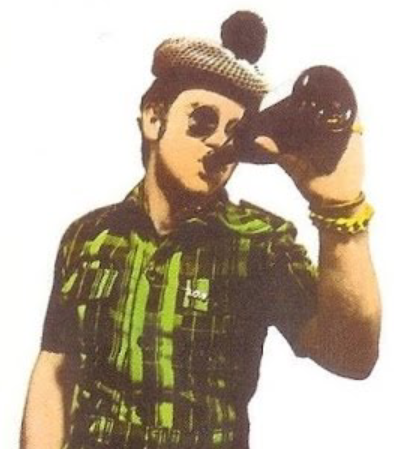I’ve been curious how many working researchers we’ve got in this community, and what you all do!
If you’re working in science (physical or social), engineering, etc in a research capacity, give a shout in the comments and let us know what you work on! Same goes for students and amateur scientists at any level. (And by amateur I mean those of you who are working on your own experiments but just not being paid for it / not working on a degree; I’m upset that “amateur” has a negative connotation, it shouldn’t.)
I’m currently a PhD candidate, working on transmission electron microscopy and electronic materials (mainly ferroelectrics). In the past I’ve been involved in research / product development in a few different industries, including medical devices, aerogels, and materials for RF devices.
I’m a PhD candidate too - my contract is finished now, but I am still writing my thesis. So I am currently at the awkward intersection of finishing a thesis and looking for a job.
My PhD focus is in applying time-resolved spectroscopy techniques to study the excited state dynamics of molecules. Basically, these are experiments in which a pulsed laser is used to excite the sample and a second probe light is used to measure a change in the absorption in response to the light. By measuring these changes in the absorption as a function of time, and applying quantum chemical techniques to calculate the spectra of potential intermediates, one can sort of recreate a molecular movie of what the molecule is doing after it absorbs light with a time resolution of femto to picoseconds. The materials that I study are organic dyes that are useful for microscopy, as well as molecules that respond to EUV light for applications in photonanolithography (for making the very small transistors in computer chips).
I am also an “amateur” scientist when it comes to biology, as many of my hobbies are nature-based and it’s not like I can turn off the science bug when it comes to hobbies.
Well that’s fascinating! The technique sounds a little bit like a cross between Raman and EXAFS/XANES? (Probably just because those are two techniques I happen to be familiar with though.)
Raman and EXAFS/XANES are techniques to probe different types of molecular transitions. Vibrational raman probes molecular vibrations, and XANES probes electronic transitions due to excitation of core electrons. Each technique will help you obtain different molecular properties. The standard approach is to apply these methods to do “static” absorption studies, meaning that one studies the transitions induced by these light sources in order to obtain molecular information of a given sample. The time-resolved techniques expand these measurements along the time dimension, so you can measure these properties but in a sample that is changing extremely quickly in response to a trigger (usually light).
So, it is not that the technique is a cross between these, but rather an approach to take Raman, or XANES, or IR-spectroscopy, or UV/Vis absorption spectroscopy, and then apply it in a time-resolved manner. You can usually take any spectroscopy technique and add “time-resolved” at the beginning and you will find someone doing that. Of course, some techniques are easier to perform in practice than others. I have done some time-resolved XANES experiments, and for those we need to go a synchrotron and the experiment is really tricky. A time-resolved UV/Vis can be done in many university labs. I don’t have practical experience with Raman experiments.
I’m a research professor of neurology, and my research focuses on developing novel cognitive assessments for measuring early-stage Alzheimer’s disease and other types of dementia.
That’s a field where it seems (to an outsider) like a lot has been happening recently! Glad to have you here!
You’d be correct! The new anti-amyloid drugs are very exciting, and it makes my work on preclinical Alzheimer’s even more fulfilling as it can have a real impact on getting people tested and treated as early as possible.
I’m a software developer who works on Backend/APIs/Cloud/AI.
Currently browsing Lemmy instead of actually doing work in my home office…
Currently browsing Lemmy instead of actually doing work in my home office…
Some days just turn out that way lol
I’m an associate professor in computer science, currently working on stochastic algorithms (like genetic algorithms).
Until now, I’ve been working on quite abstract optimization problems, but I’d like to switch to more useful applications, like social inequalities or climate change.
I get that. Working on a more abstract problem should, in theory, help solve more practical problems down the line, but sometimes it just feels less satisfying that working on something where you can see the real world application and (hopefully) results. I’m definitely looking to do something practical with my experience once I’m finished with my PhD.
It’s science-y enough but I’m definitely not considered a scientist so much as a technologist. I work as a MRI (Magnetic Resonance Imaging) Technologist. Previously a X-Ray Technologist.
My machine does all the science for me but it’s a pretty neat concept. Using magnetic gradients and RF pulses at hydrogen protons to acquire accurate digital imaging.
Happy to have you! The science behind MRI is fascinating, and the machines themselves are really cool. Have you ever seen a magnet quench? I don’t think they’re really supposed to happen during normal operation, but some of the videos I’ve seen have been rather dramatic.
It is pretty crazy people were able to figure that all out and we are able obtain crazy detailed pictures without radiation.
No I haven’t seen it! Hoping to see a controlled quench someday but also hoping to avoid needing to use it in any emergency situations; it’ll have to be a damn near life/death situation to hit that button. Very costly decision. I guess there’s also a dwindling supply of helium in the world so that could get interesting as time goes on.
Yeah, helium being a finite resource was something that really surprised me when I first learned about it! Better to keep it inside the MRI as much as possible for sure
I’m a postdoc, working on laser-plasma/ interactions and electron accelerators. My PhD work was on ultrafast electron diffraction.
ultrafast electron diffraction
That’s pretty fascinating stuff! I know a lot about electron diffraction in general (in the context of TEM/STEM/4D-STEM), but not ultrafast. What kind of processes were you studying with that method?
Our beamline is still very new (my main focus was actually on building/commissioning it), so for now, we’ve just been looking at relatively simple processes like the Debye-Waller effect, where the diffraction spots become weaker as the temperature rises.
The ultrafast capability comes from the electron beam having a sub-picosecond duration, which essentially corresponds to the shutter speed of a camera. By varying the delay between a pump laser and the electron probe and observing the change in intensity of the diffraction spots, we can figure out how the heat deposited by the laser diffuses through the sample, and make a “molecular movie” of this process. It’s in the same spirit as other pump-probe experiments, like what @Salamander does.
I’m a professor of chemistry, I mainly do organometallic research but we’ve been branching out into other areas.
@sensibilidades @realChem MOFs are hot
I’m a PhD candidate in inorganic and biochemistry! Loving the chem representation here, and loving OP’s username.
I am a welding Engineer working in a mixed role of failure analysis and research. Most of my projects are sustainability based.
Very cool! From the small bit I learned about welding in my classes it really seems like a topic with a lot of depth and nuance to it (that maybe sometimes goes unappreciated). Happy to have you 'round!
Honestly it’s one of my favorite things about welding engineering- it’s materials, physics, electrical, mechanical, manufacturing, automation, chemical… you get a bit of a lot of disciplines!
Graduate student in ecology, just finishing up.
what are you hoping to do afterward? I’ve always found ecology interesting
Congrats on (being close to) making it through!
I work a day job in IT, have a side business doing IT, work an occasional shift at my buddy’s liquor store, and sell furniture on the side.
Glad to have you 'round!
I’m a PhD in chemical engineering and work in a testing laboratory for electrical engineering insulating materials. My dissertation was using predictive modelling (some data mining and machine learning, some more classical statistical methods) to estimate material properties from spectral data. I’m trying to combine a full-day engineering job with writing more journal articles in my spare time. Currently not going well but at least I’m not lacking for data!
I’m working on my Astrophysics PhD. I study “galactic cannibalism” aka how galaxies grow and change by eating smaller galaxies. My big focus is on teaching and outreach though rather than research.
Cool! Is this the kind of thing that’s going to happen between Andromeda and the Milky-way, or is that fundamentally different because they’re more similar in size?
I work in mine closure. I create plans to re-integrate them back into the surrounding landscape, and provide valuable end land uses (not just those centred around ecosystem re-establishment).
That’s so cool! Sounds like an incredibly rewarding job. (Also I love visiting old mines that are no longer working but are open to the public for viewing. Always a cool experience.)
I’ve got a PhD in nonlinear vibrations. I’ve left academia for the space industry though.
That definitely sounds like something that could be useful in a lot of different ways - including in the space industry!
Yeah well most industries pray that everything stays all good and linear, but sadly it isn’t always the case haha. The next level is to design a structure with nonlinearities on purpose.








